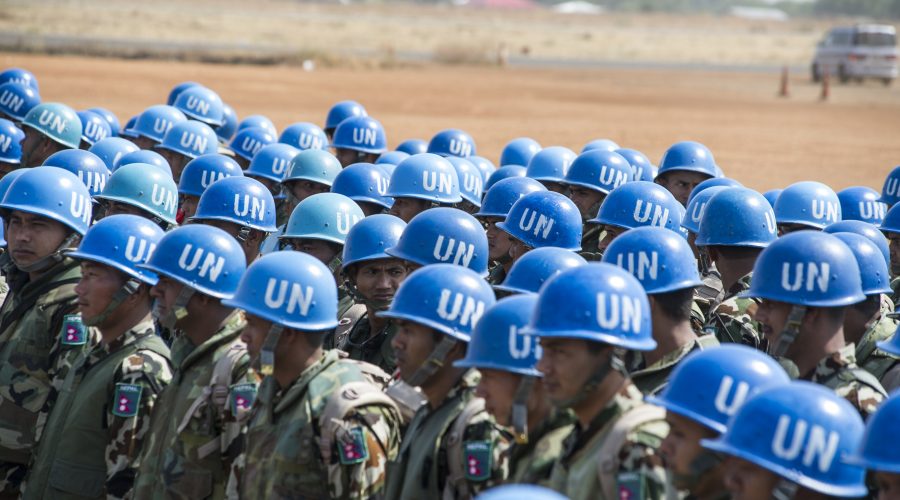Commemorated on 21 September annually, this year’s Peace Day was especially significant for the world’s youngest nation as it slowly begins recovering from prolonged internecine strife and the COVID-19 pandemic.
In the spirit of recovery and reconciliation, The United Nations Mission in South Sudan (UNMISS) helped sponsor a panel discussion to mark the Day, drawing panellists from various universities across Juba, the South Sudan Peace Commission and the Ministry of Youth, Culture and Sports.
Speaking at the event, Sharon Lowery, a Human Rights Officer with the UN Peacekeeping mission stated that this year’s country-specific theme ‘Building Equitable and Sustainable Peace,’ is achievable only if all partners work seamlessly as a team to bring an end to human rights violations, recurrent ambushes on major trade routes and economic hardships, among other challenges.
“Killing and injuries, sexually-motivated violence and the ensuing stigma or discrimination, underage or forced marriages, recruitment of child soldiers and attacks on schools and places of worship, are some of the major human rights concerns that must stop,” stated Ms. Lowery.
Choul Ranbhang, Chairman, of the South Sudan Peace Commission, agreed. He also urged young people to avoid being grouped into factions along ethnic or regional lines as this often leads to conflict which could, otherwise, be avoided.
This year’s Peace Day was especially significant for the world’s youngest nation as it slowly begins recovering from prolonged internecine strife and the COVID-19 pandemic
“I encourage young people to shun interethnic divisions; engage yourselves in peace initiatives so that whatever you speak about, sing about or debate upon will advance messages of reconciliation, peace and healing to everybody,” he said.
Ajonye Pepetua, Chair of the South Sudan Law Society highlighted that frustration abounds if abuses and violations are committed with impunity.
“If people fail to get the justice they duly deserve, the end result is anger, frustration, counter aggression and trauma, which can eventually breed many societal problems,” averred Ms Pepetua.
Additionally, she warned young people against substance abuse. “When young people are stressed and traumatized by the events unfolding around them, they could potentially be drawn towards consuming alcohol or other illicit substances. These also fuel aggression, so I advise all youth to refrain from such negative behaviours.”
Ms Pepetua added that everybody in South Sudan has been impacted by violence and war. “While you might not have faced the abuses or violations yourself, the fact remains that you are part of the social fabric in which they occur. This affects you equally and ensures you suffer from trauma as well.”
For Charles Abuni, Chairperson of Kpwo ni Kpwo, a local youth group that helps communities deal with trauma, collective efforts is needed to usher in a future of durable peace. “We need to combine our energies to respond proactively to reports of stigma, trauma and discrimination. If you see your friend or a family member behaving in a strange manner, don’t turn your back on them. Instead, be the listening ear and the guiding hand they need,” he said eloquently.
According to Guy Bennett, Head of the UNMISS Political Affairs Division, 70 per cent of South Sudanese are under 30 years of age. This massive youth population are a key agent of positive social transformation and need to be fully engaged and included in the ongoing peace process here.
“Intensifying grassroots peace initiatives, especially among young people is bound to help lessen intercommunal tensions and violence and promote social cohesion from the bottom up to the highest leadership stratum. If youth are engaged in building peace, they have the potential to become powerful drivers of much-needed change.”


